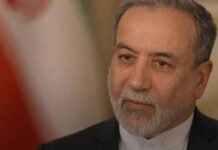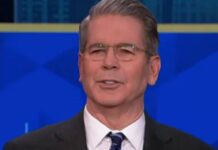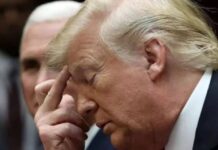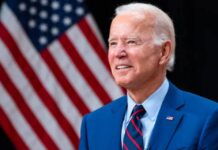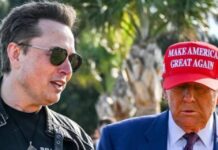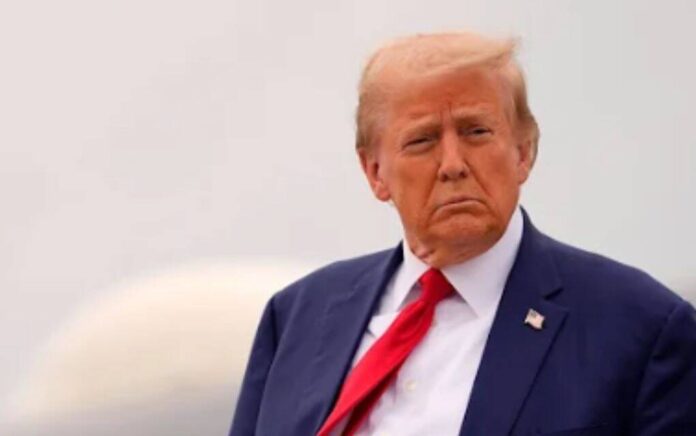
The President has been betting on himself. If it went wrong, he’d be in big trouble.
But President Trump was just able to breathe a sigh of relief after he got exonerated in this huge way.
Trump Tariffs Defy Critics as Inflation Stays Low and Economy Grows
President Donald Trump’s tariff policies, a cornerstone of his second-term economic agenda, have defied dire predictions from corporate media and economic pundits. Despite warnings of rampant price hikes and economic turmoil, recent data shows inflation remains subdued, and the U.S. economy continues to show resilience.
On April 2, Trump imposed steep reciprocal tariffs on numerous countries, later announcing a 90-day pause that reduced most duties to a 10% baseline. Corporate media outlets, including ABC News, warned on March 26 that these tariffs “would ratchet up the global trade war, raising prices for an array of consumer goods and risking an economic slowdown.” Yet, inflation has not surged as predicted.
In May, inflation rose less than expected, dropping to a four-year low, according to data from the Bureau of Labor Statistics (BLS). This followed a CNBC report on May 13, which noted that inflation had “eased” in April despite the tariffs but cautioned that prices could climb as duties took effect. Those warnings have yet to materialize.
The Guardian, in an April 22 opinion piece, claimed that tariffs would inevitably drive up costs. “There is no way tariffs of this magnitude can be absorbed,” the authors wrote. “Producers and consumers must take a hit, and that means rising prices.” However, the expected price spikes have not occurred.
NewsNation host Chris Cuomo echoed similar sentiments in February on “The Chris Cuomo Project.” “[T]he idea that it’s going to boost our economy — never happens, okay? The idea that you can tariff your way and not have an income tax anymore — not going to happen,” Cuomo said. “The idea that you’re going to apply a tariff and it doesn’t affect inflation — not true.”
CNN, in a June 20 report, acknowledged that the tariff-related inflation fears have not come to fruition. “Predictions from mainstream economists were dire after President Donald Trump launched his tariff campaign just a couple weeks after he began his second term in office: Prices would rise — sharply — they said, reigniting an inflation crisis that tens of millions of Americans had elected him to solve,” the piece states. “But that massive, tariff-induced inflation spike hasn’t materialized. Not even close.”
Treasury Secretary Scott Bessent, speaking on “Pod Force One” on June 18, dismissed critics of the tariffs as suffering from “tariff derangement syndrome.” “I think that a lot of Democrats are in favor of tariffs, but now that President Trump is leading the charge, they can’t be,” Bessent said. “And so they call them the Trump tariffs. And all these predictions have just been baseless and a flop — and nobody wants to admit it.”
Bessent pointed to BLS data showing the consumer price index (CPI), a measure of everyday goods prices, rose by only a seasonally adjusted 0.1% in May. The Producer Price Index, which tracks wholesale prices, also increased by just 0.1% in the same period.
The U.S. economy also demonstrated strength in June, adding 147,000 nonfarm payroll jobs, according to BLS data released on Thursday. This figure surpassed economists’ expectations of 106,000 jobs, signaling robust economic activity despite the tariffs.
Tariffs are designed to protect domestic industries by increasing the cost of foreign goods, leveling the playing field for American businesses. By making imports more expensive, the policy aims to shield U.S. industries from foreign competition, particularly from nations with lower labor costs or government subsidies.
The strategy appears to be encouraging companies to invest in domestic production. Several firms in industries like manufacturing and steel have reported increased activity and interest in reshoring, or bringing manufacturing back to the U.S., as a result of the tariffs.
The steel and aluminum sectors, in particular, have seen tangible benefits. According to the Economic Policy Institute, following the 2018 Sec. 232 tariffs, U.S. steel output, employment, capital investment, and financial performance all improved. Similar trends are emerging under the current tariff regime.
The Trump administration’s tariff policies aim to bolster American industries by prioritizing domestic production and job creation. While critics continue to warn of potential downsides, the absence of significant inflation and steady economic growth suggest the measures are having a positive impact.
As the 90-day tariff pause continues, businesses and consumers alike are watching closely. For now, the data supports the administration’s approach, with job growth exceeding expectations and inflation remaining under control.


